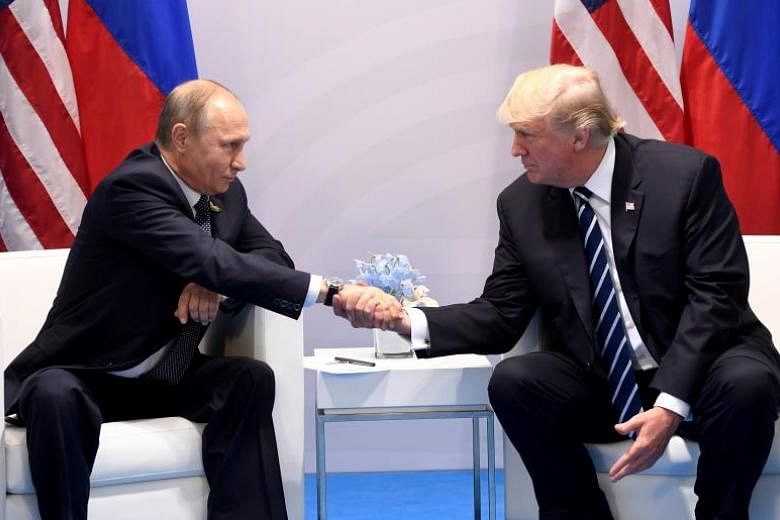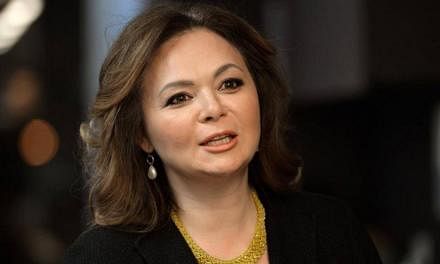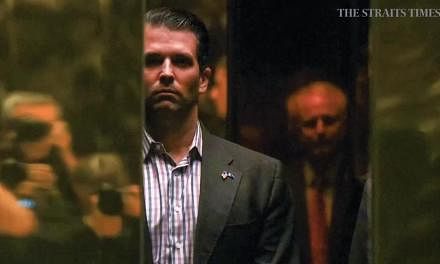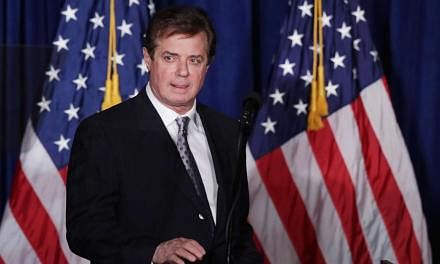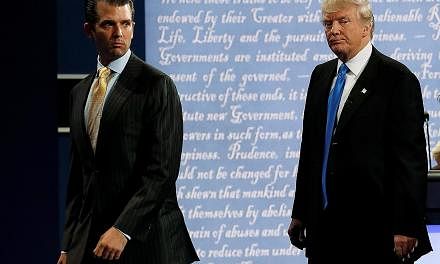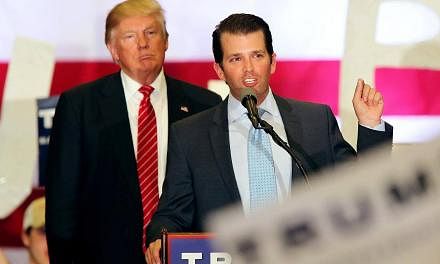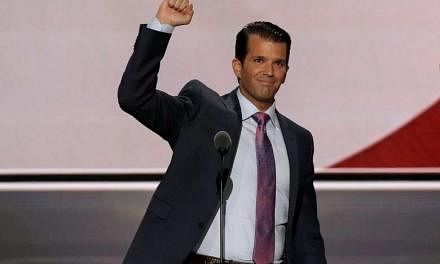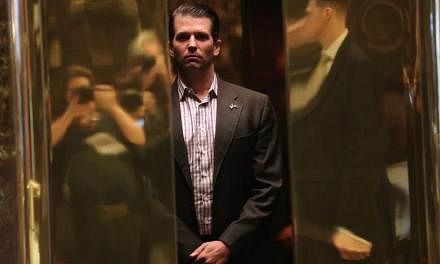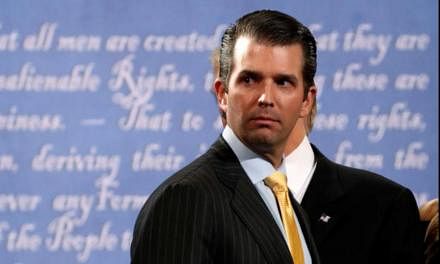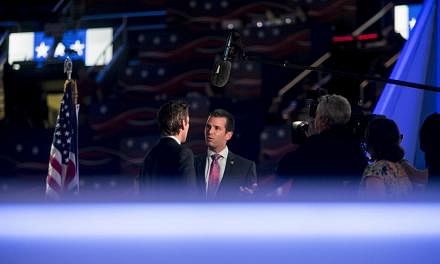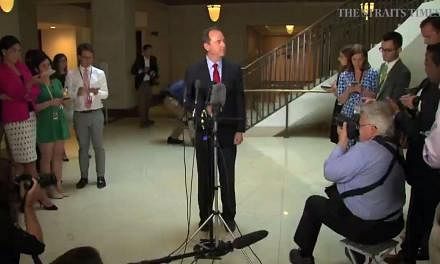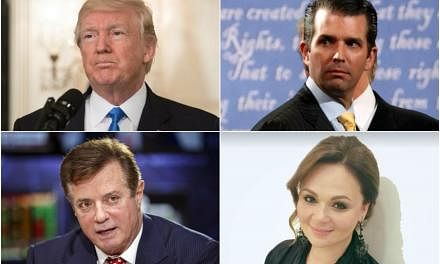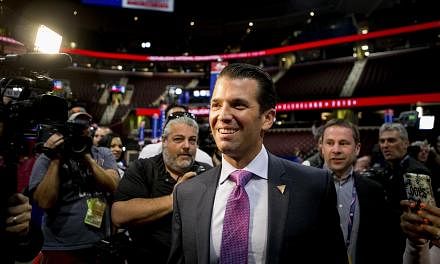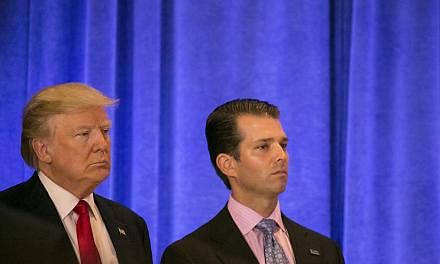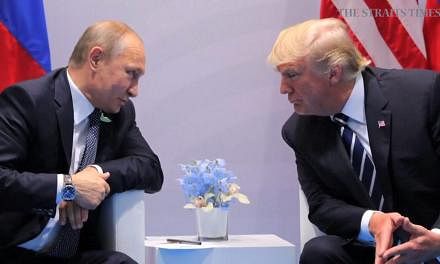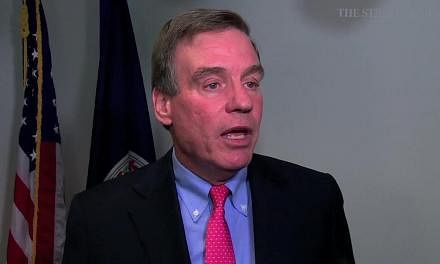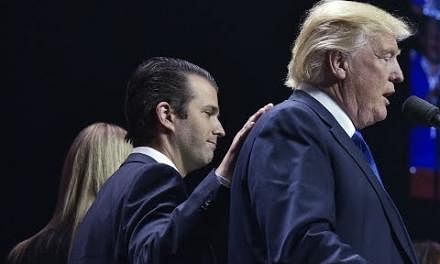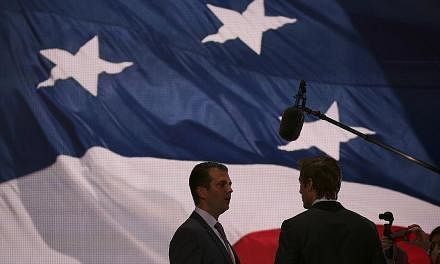WASHINGTON - Mr Donald Trump Jr's revelation of an e-mail chain has lifted the controversy over Russia's alleged influencing of last year's election to a new pitch.
In the messages, a go-between who was setting up a meeting with a Russian lawyer had mentioned "Russia and its government's support for Mr Trump".
As Democratic party politicians pointed to this as proof of Russia's influence and possible collusion from the Trump camp, the Trumps moved to counter the backlash.
At the daily White House press briefing - lately held off camera - Deputy Press Secretary Sarah Huckabee Sanders read out a brief statement from President Donald Trump, saying: "My son is a high quality person and I applaud his transparency."
Later, the President tweeted: "He is a great person who loves our country!"
Mr Trump Jr, 39, was due to appear on the pro-Trump TV anchor Sean Hannity's show on Fox News on Tuesday evening (10am, Wednesday, Singapore time).
Analysts said the revelations in the e-mail messages make it likely that the three Trump associates at the meeting with the Russian lawyer - Mr Trump Jr, the President's son in law Jared Kushner, and former campaign manager Paul Manafort - will be summoned before Senate committees to testify under oath.
This promises more political drama in the months ahead, ensures that the increasingly murky Russia issue remains an albatross around the President's neck, and could hamstring progress on the President's agenda.
"The revelations raise questions that will provide fodder to investigators for months to come," professor of American Studies Glenn Altschuler at Cornell University told The Straits Times.
Yet, by the end of the day it was also clear that the Republican party remains unwilling to abandon Mr Trump to his political enemies.
"With the exception of Senator Lindsey Graham and one or two others, Republican Senators and members of the House have not, either in words or body language, done more than issue rather tepid expressions of concern," Professor Altschuler said.
"The likelihood that this will erode President Trump's approval, at least at the moment, is fairly low. And, of course, the politicians in Washington pay attention to those ratings," he added.
Mr Trump's approval among Republicans has been steady at 85 per cent since February. Last week, an NPR/PBS NewsHour/Marist poll found that 73 per cent of Republicans were unwilling to believe that the President had colluded with Russia.
Mr Trump Jr had been forthcoming in releasing the e-mail chain, and said he would be happy to testify before the Senate intelligence committee, Mississippi Republican Senator Roger Wicker told the Fox Business TV channel soon after the release of the correspondence.
"Is it the end of the world? No," he said. "Is it a terrible distraction that takes us away from getting health care done? Yes. It's another little stumbling block."
But the revelations have certainly set political circles alight and re-energised Democrats.
"It does look awful," Republican strategist and commentator Evan Siegfried told The Straits Times. "Trump Jr's shifting explanations do not lend any credibility."
"It has not risen to the level of proving collusion, however, it makes it clear that Trump Jr was willing to listen to a foreign power," said Mr Siegfried.
"Why he chose to have that conversation and not at least check with the FBI to make sure everything was above board is beyond me."
He added: "Democrats are already fairly convinced President Trump is hiding something and Republicans…are getting tired of new revelation after new revelation.
"They don't want to talk about it, it harms their ability to get our agenda passed, and it is starting to paralyse the United States government."
On the table in the immediate term is the contentious health care bill, which President Trump has insisted must get passed. The Senate is due to sit two weeks longer than normal into the usual summer vacation break to get this done.
"These two weeks will reveal a lot," said Prof Altschuler. "If they do not produce an agreement on health care, the Trump agenda - not only on health care but also tax reform and infrastructure - will be in danger."

